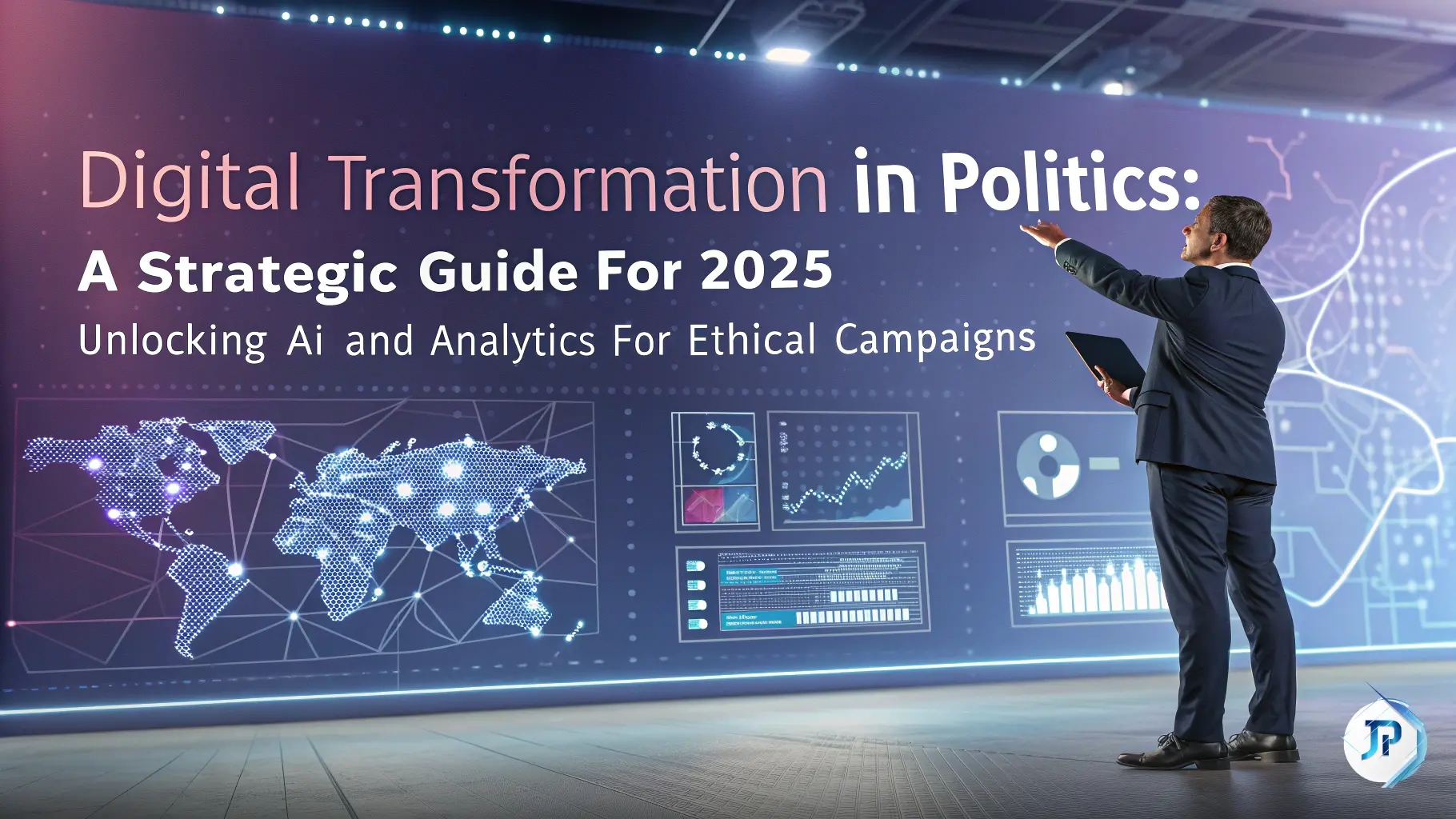Digital Transformation in Politics: A Strategic Guide for 2025

Digital Transformation in Politics: A Strategic Guide for 2025
Meta Description: Explore how digital transformation is revolutionizing political campaigns and governance in 2025. Learn key strategies, tools, and best practices for success in the digital political landscape.
Introduction
In 2025, political success hinges more on digital strategy than traditional campaigning. As digital transformation reshapes industries worldwide, politics is no exception. From better outreach to more targeted policies, technology is redefining how campaigns operate and governments interact with citizens.
In Nassau County, Queens, and Suffolk County, the transition to digital politics is palpable. Campaigns are leveraging advanced technologies to harness emerging voter trends. If you're a business leader or political consultant aiming to stay relevant, it’s critical to understand the driving forces behind this change and how to implement these innovations into your own strategies.
The Evolution of Digital Politics: From Social Media to AI
A Brief Look Back
Technology has played a key role in politics for decades. Social media platforms like Facebook and Twitter transformed campaign strategies in the early 2000s. Candidates could now engage directly with voters on a scale never seen before, revolutionizing transparency and communication.
Where We Are Now
In today's political campaigns, the stakes are higher than ever, with tools like:
- Artificial Intelligence (AI): Automating everything from speech analysis to voter outreach.
- Machine Learning Algorithms: Crunching voter data to predict behavior patterns.
- Data Visualization Tools: Helping campaigns make data-driven decisions quickly.
Local races in New York are staying competitive by utilizing these tools to connect with voters on a personal level while staying one step ahead of their opponents.
Essential Digital Technologies for Modern Political Campaigns
1. Data Analytics and Voter Targeting Platforms
With tools like voter profiling and real-time feedback analysis, political teams can tailor messaging to specific demographics, boosting engagement.
2. AI-Powered Campaign Optimization
Tools like natural language processing (NLP) help campaigns craft compelling speeches, while AI-driven email campaigns ensure timely, relevant communication.
3. Digital Communication Platforms
From Twitter to live-streaming on YouTube, digital platforms allow direct, meaningful voter interactions. Campaign-specific social listening tools also track sentiment.
4. Cybersecurity Considerations
As digital campaigns grow, so do security risks. Protecting sensitive voter data and ensuring systems aren’t compromised is crucial.
Implementing Digital Transformation in Your Political Strategy
Evaluate Your Current Digital Setup
Start by assessing what’s currently working—or not. Ask: Are we leveraging data analytics or still relying on dated methods?
Build a Digital Transformation Roadmap
- Identify your digital goals.
- Research tools and technologies aligned with those goals.
Budgeting and ROI
Factor in upfront costs for technologies like campaign platforms and cybersecurity and evaluate their long-term ROI. Simply put: an upfront investment can result in significant voter impact.
Change Management and Training
Digital transformation requires everyone on your team to buy in. Provide training to ensure fluency in new technologies.
Ethical Considerations and Best Practices
Protecting Voter Data and Privacy
Voter trust is paramount. Ensure that your systems never misuse personal information.
Be Transparent
Make sure your use of AI and data analysis is clear to avoid ethical backlash.
Balancing Automation with the Human Touch
Automation can enhance, but not replace, genuine communication. Use it to supplement—not substitute—human interactions.
Ensure Regulatory Compliance
Digital campaign regulations exist for a reason. Ensure compliance with all rules to avoid penalties.
Future Trends and Preparing for 2026 and Beyond
Emerging Technologies
Technologies such as augmented reality (AR) and advanced data ecosystems show promising potential for campaigns.
Shifts in Voter Behavior
As voters become increasingly digital-savvy, expect heightened demand for transparency and deeper connections via online platforms.
Long-Term Strategies
Equip your team with adaptable software and workflows, ensuring readiness for future technological leaps.
Adaptability
The political organizations that thrive will be the ones ready to pivot strategies and tools as needed.
Conclusion
Digital transformation in politics isn't just a trend—it’s the future. Key tools, thoughtful implementation, and ethical practices will drive success. Leaders willing to embrace digital transformation can modernize their campaigns and build long-lasting connections with voters.
Curious how to implement these strategies? Get in touch today to explore how digital transformation can redefine your political campaign in 2025 and beyond.